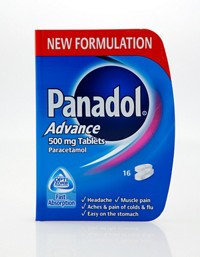Advertisement
Grab your lab coat. Let's get started
Welcome!
Welcome!
Create an account below to get 6 C&EN articles per month, receive newsletters and more - all free.
It seems this is your first time logging in online. Please enter the following information to continue.
As an ACS member you automatically get access to this site. All we need is few more details to create your reading experience.
Not you? Sign in with a different account.
Not you? Sign in with a different account.
ERROR 1
ERROR 1
ERROR 2
ERROR 2
ERROR 2
ERROR 2
ERROR 2
Password and Confirm password must match.
If you have an ACS member number, please enter it here so we can link this account to your membership. (optional)
ERROR 2
ACS values your privacy. By submitting your information, you are gaining access to C&EN and subscribing to our weekly newsletter. We use the information you provide to make your reading experience better, and we will never sell your data to third party members.
Business
Merck & Co. Sells Consumer Products Unit To Bayer
Firm to sell unit for $14.2 billion, another ground shift for pharmaceuticals
by Lisa M. Jarvis
May 9, 2014
| A version of this story appeared in
Volume 92, Issue 19
In the latest big pharma move to slim down, Merck & Co. will sell its consumer care business to Bayer for $14.2 billion. In a related transaction, Merck will also give Bayer $1 billion up front to codevelop a class of cardiovascular drugs.
Merck announced in January that it was considering its options for both its consumer care and animal health units, adding to a growing industry trend to trim businesses viewed as tangential to the development of innovative drugs. Other moves include Pfizer’s 2012 spin-off of its animal health unit and sale of its nutrition business; Abbott Laboratories’ spin-off last year of its innovative medicines business, AbbVie; and Novartis’s sale last month of its animal health unit to Eli Lilly & Co., a deal that coincided with it combining its consumer health businesses with that of GlaxoSmithKline, with whom it also traded its vaccines unit for GSK’s oncology products.
“The tsunami of deals sweeping the life sciences industry promises to reshape the competitive playing field,” says Jeffrey Greene, global life sciences transaction advisory services leader at Ernst & Young, who expects more multi-billion-dollar sales and swaps this year.
With the side deal, Merck gains access to Bayer’s modulators of soluble guanylate cyclase (sGC), a critical enzyme in a signaling pathway that is impaired in cardiovascular disease. The partners will equally share costs and profits from molecules developed through the pact, which includes Adempas, approved by FDA last year as a treatment for pulmonary hypertension.
For Bayer, the purchase comes amid rumors that it is interested in selling its plastics unit, which could garner more than $10 billion, to focus more on its health care business.




Join the conversation
Contact the reporter
Submit a Letter to the Editor for publication
Engage with us on Twitter